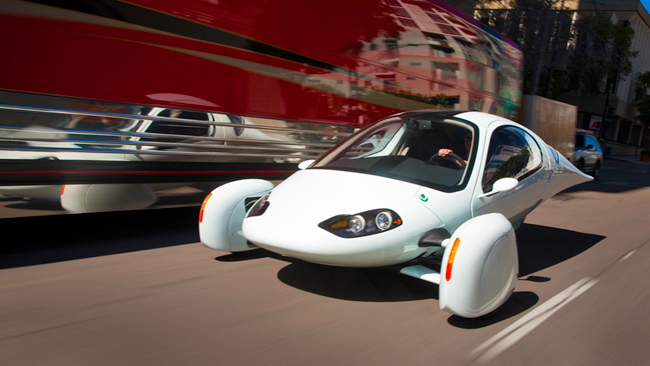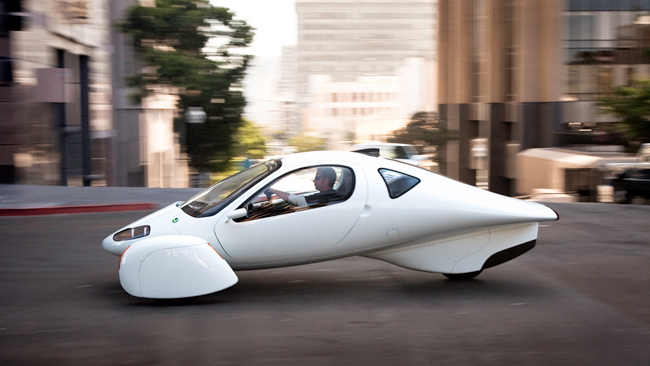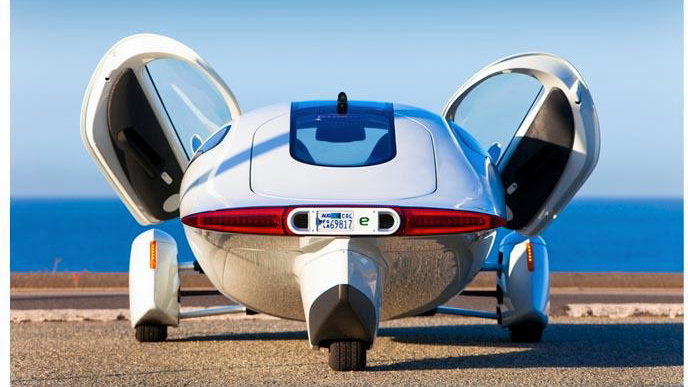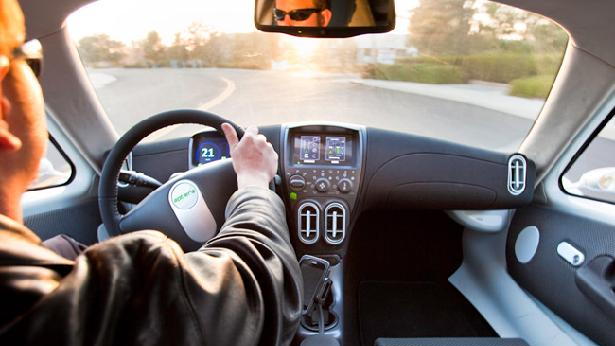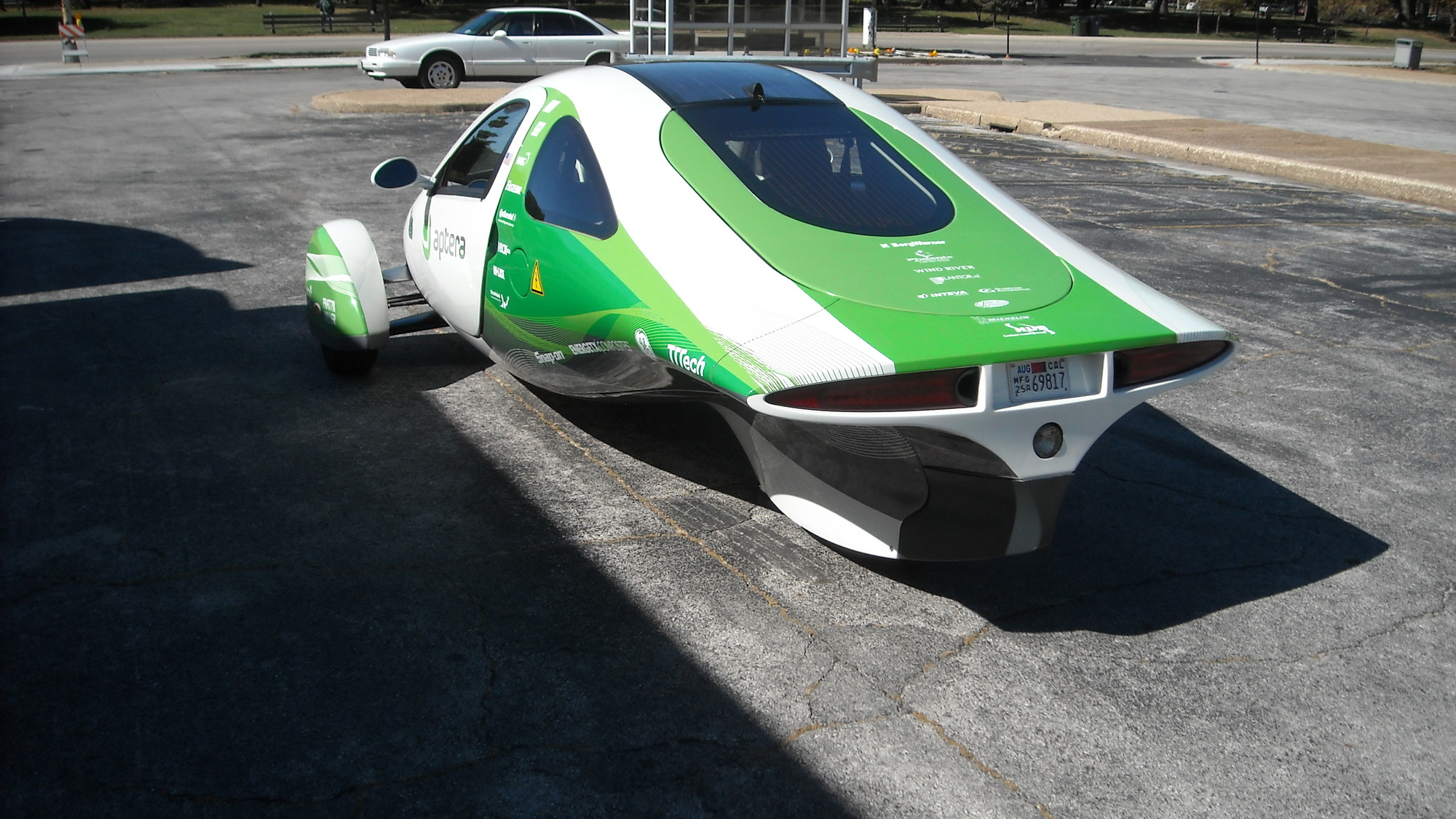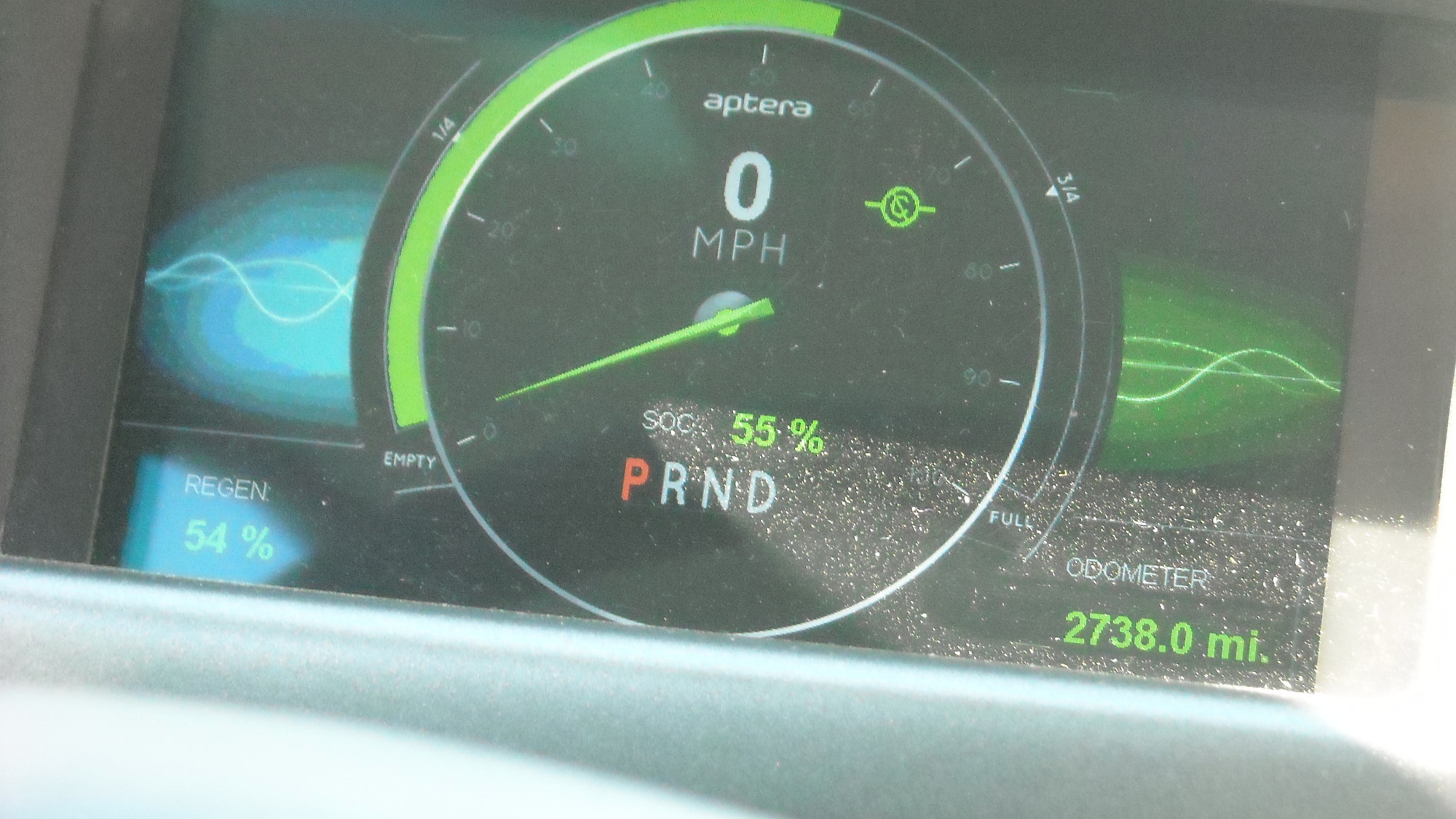Aptera has just released a statement, saying it will shut down operations today.
As recently as two years ago, the southern California-based Aptera had plans to introduce an electric car and to sell up to 10,000 copies a year. It had even hoped to received approval for some of the same federal loans that have helped along other electric-car projects such as the Chevy Volt, Nissan Leaf, Ford Focus Electric, Tesla Model S and Fisker Project Nina. It spoke of plans to build a new plant near San Diego.
But the Aptera story, and all its mildly fascinating and majorly improbable visions, really began in 2010. That's when Aptera began letting journalists experience its 2e, a weirdly styled three-wheeler that ran on battery power. Aptera promised 100 miles of range from the vehicle's electric powertrain, and began taking deposits for delivery sometime in 2011.
Then it stopped taking deposits for the biologically themed 2e in July. In August, the company said that it would return deposits to potential buyers due to what it described as credit-card transaction problems. Three weeks ago, the company insisted on its Web site that a vehicle was coming--but mysteriously had removed mention of the 2e from its Web site.
Optimistically--but possibly, more revealingly--a spokesperson said then that the web site would soon showcase "a better reflection of how our business is developing."
This afternoon, Aptera sent out an email to the media confirming that it would shut down. It explained in the letter that its other plans for electric-car greatness had taken too much time, and had come in underfunded.
In the letter, Aptera president Paul Wilbur says his company's application for low-interest loans from the Department of Energy had made it as far as a "conditional commitment letter" for a $150 million loan. That money was to be devoted to a five-seat mid-size sedan. However, Aptera says it was unable to find matching funds to equal those in the conditional letter--though it does not address how it would have funded the development, procurement, assembly construction and other major facets of such a plan even on a potential $360 million budget.
In another interesting detail revealed in the letter, Aptera's plan would have placed operations not in San Diego, but instead in the middle of the Rust Belt. Aptera's plan for DOE dollars centered around revamping an existing plant in Moraine, Ohio--a plant that was bundled in "old GM" assets spun off during General Motors' bankruptcy. The plant had formerly assembled SUVs like the Chevrolet TrailBlazer, and was the subject of an HBO short documentary entitled The Last Truck. The plant is also located in one of the few states that election analysts say are critical to the upcoming 2012 Presidential campaign.
Aptera's operations, including the stillborn 2e, cease immediately, according to the official letter below:
After years of focused effort to bring our products to the market, Aptera Motors is closing its doors, effective today. This is a difficult time for everyone connected with our company because we have never been closer to realizing our vision. Unfortunately, though, we are out of resources.
It is especially disappointing since we were so close…
Aptera executives had been engaged in exhaustive due diligence with the Department of Energy (DOE) pertaining to an ATVM (Advance Technology Vehicle Manufacturing) loan. Our business plan was examined from top to bottom by internal agency representatives, independent consultants and experts in academia. They did an amazing job of vetting us and they tested every possible weakness in our plan. And after nearly two years of discussions, we had recently received a Conditional Commitment Letter for a $150 million loan.
The ATVM loan would have provided funding for the development and commercialization of a five-passenger, midsized sedan (similar to a Toyota Camry) that would be base priced at less than $30,000 and deliver more than a 190 mile per gallon equivalent. The concept of this vehicle had been in place since the very beginning of Aptera, and we had been wholly focused on its development for the last year. The last remaining hurdle was finding new funds to match the DOE loan.
We were so optimistic that the company would move forward that we were in discussions to reactivate a mothballed automotive plant in Moraine, Ohio. In the past months we had engaged with the labor union that operated that facility to discuss the hiring of 1,400 new job opportunities. These jobs would have reactivated talented workers who had been dismissed when the facility was closed.
During the same time, we continued development of our patent-pending composite manufacturing system that enables energy efficient vehicle production by drastically reducing vehicle weight (by as much as 30%) while tripling its strength. This same patent pending system allowed us to finish the surface of our composites without manual finishing and without the high capital cost of a typical automotive paint shop. In all, the process would save nearly $750-million versus a typical volume auto assembly plant start-up.
We were well on the way to satisfying the vision of efficiency on which the company was founded and we are confident that with time and capital we could still achieve our goal. The Aptera formula: aerodynamics plus light weight design (through composites) delivered efficiency of 206 EPA miles per gallon in tests at Argonne National Labs. That wasn’t a simulation; it was real measured performance. Despite that promise of efficiency, this challenged market – specifically large private investors – did not have an appetite to lead an investment for the perceived low volume return of our three-wheeled vehicle. So we reprioritized our product plan to four-door sedans, which also cost us time.
We remain confident, even as this chapter closes, that Aptera has contributed tech new technologies to build a future for more efficient driving. Through the dedicated staff at Aptera, our board and suppliers we have touched this future. All that remains is for someone to grab it. We still believe it will happen.
Paul Wilbur
President and CEO
Aptera Motors
